March 5 stands as one of history’s most eventful days, witnessing the rise and fall of empires, groundbreaking discoveries, and moments that shaped our modern world across centuries of human achievement.

Politics and Government Events on March 5
1933 – Nazi Party Gains Power in German Elections
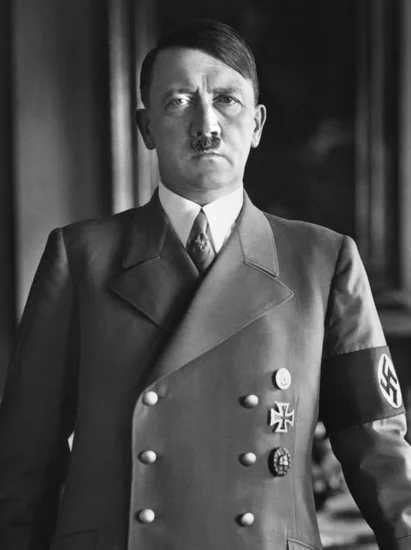
Adolf Hitler’s Nazi Party received 43.9% of the vote in the Reichstag elections, providing the political foundation for dictatorship. This electoral victory enabled the Nazis to later pass the Enabling Act.
The results marked the final democratic election in Germany before the establishment of totalitarian rule. Hitler’s party capitalized on economic instability and social unrest to gain unprecedented political power.
1946 – Churchill Delivers “Iron Curtain” Speech
Winston Churchill delivered his famous “Iron Curtain” speech at Westminster College in Missouri, defining the emerging Cold War. His words crystallized Western concerns about Soviet expansion across Eastern Europe.
The speech introduced the metaphor that would define East-West relations for decades. Churchill’s warnings about communist influence helped shape American foreign policy during the early Cold War period.
1960 – Indonesian Parliament Dissolved
President Sukarno dismissed the democratically elected Dewan Perwakilan Rakyat and replaced it with his handpicked parliament. This authoritarian move consolidated presidential power and ended Indonesia’s brief democratic experiment.
The dissolution marked a decisive shift toward guided democracy under Sukarno’s leadership. Opposition parties found their political influence systematically eliminated through executive decree.
1962 – Gandhi-Irwin Pact Signed
The historic agreement between Mahatma Gandhi and Viceroy Lord Irwin temporarily suspended the Salt March civil disobedience campaign. British authorities agreed to release political prisoners and allow salt production along the coast.
This diplomatic breakthrough represented a significant victory for the Indian independence movement. Gandhi’s nonviolent resistance strategy gained international recognition and legitimacy through the negotiated settlement.
1965 – March Intifada Erupts in Bahrain
A leftist uprising erupted against British colonial presence in Bahrain, challenging imperial authority in the Persian Gulf. Local activists organized strikes and demonstrations demanding immediate independence.
The rebellion reflected growing Arab nationalism and anti-colonial sentiment throughout the Middle East. British forces struggled to maintain control as protest movements gained momentum across the region.
Military and Naval History on March 5
1906 – First Battle of Bud Dajo
United States Army troops brought overwhelming force against native Moros in the Philippines, leaving only six survivors. This devastating battle demonstrated American military superiority during the Moro Rebellion.
The engagement highlighted the brutal nature of colonial warfare in the Philippines. American forces employed modern weapons and tactics against indigenous fighters defending their homeland.
1912 – First Military Use of Airships
Italian forces became the first military to use airships for reconnaissance during the Italo-Turkish War. These aircraft provided unprecedented aerial surveillance capabilities behind Turkish lines.
The innovation marked a revolutionary advancement in military aviation and intelligence gathering. Italian commanders gained significant tactical advantages through aerial reconnaissance missions.
1940 – Katyn Massacre Ordered
Six high-ranking Soviet Politburo members, including Joseph Stalin, signed orders for the execution of 25,700 Polish intelligentsia. This genocidal decision targeted 14,700 Polish prisoners of war and civilian leaders.
The systematic elimination of Poland’s educated class represented a calculated attempt to destroy Polish national identity. Soviet authorities sought to prevent future resistance by eliminating potential leadership.
1942 – Japanese Forces Capture Batavia
Japanese forces captured Batavia, capital of the Dutch East Indies, after Dutch and Australian forces withdrew. The city fell without resistance as Allied troops retreated to defensive positions.
This victory secured Japanese control over the Indonesian archipelago and its vital oil resources. The capture completed Japan’s domination of Southeast Asia during the early Pacific War.
1944 – Red Army Launches Uman-Botoșani Offensive
The Red Army began major operations in the western Ukrainian SSR, pushing German forces westward. Soviet commanders coordinated massive artillery barrages and infantry assaults across multiple fronts.
The offensive represented part of the broader Soviet campaign to liberate occupied territories. Red Army units advanced steadily despite fierce German resistance and winter conditions.
Science and Discovery Milestones on March 5
1978 – Landsat 3 Launched

The Landsat 3 satellite launched from Vandenberg Air Force Base, advancing Earth observation capabilities. This sophisticated spacecraft provided unprecedented views of environmental changes and land use patterns.
Scientists gained powerful new tools for monitoring deforestation, urban growth, and natural disasters. The satellite’s data revolutionized environmental research and resource management worldwide.
1979 – Gamma Ray Discovery
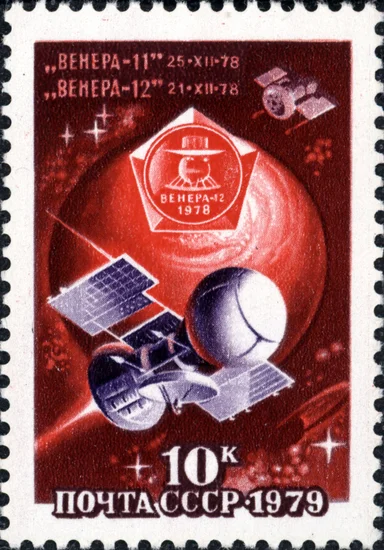
Soviet probes Venera 11 and Venera 12, along with the German-American Helios II satellite, detected massive gamma rays. These “off the scale” readings led to the discovery of soft gamma repeaters.
The simultaneous detection across multiple spacecraft confirmed the cosmic origin of these powerful emissions. Astronomers gained new insights into stellar explosions and neutron star behavior.
1982 – Venera 14 Lands on Venus
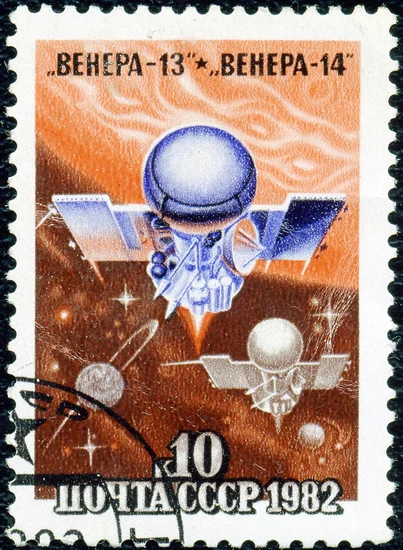
The Soviet probe Venera 14 successfully landed on Venus, transmitting valuable data about the planet’s hostile environment. Scientific instruments recorded extreme temperatures and atmospheric pressure readings.
The mission provided crucial information about Venus’s geological composition and atmospheric chemistry. Soviet space engineers demonstrated remarkable technical achievements in planetary exploration.
1981 – ZX81 Computer Launched

Sinclair Research launched the ZX81, a pioneering British home computer that democratized personal computing. The affordable machine sold over 1.5 million units worldwide, bringing computers into ordinary households.
The ZX81’s success sparked a home computing revolution throughout Britain and beyond. Thousands of users learned programming skills and discovered the potential of personal computers.
Cultural and Arts Events on March 5
1963 – Country Music Stars Killed in Plane Crash
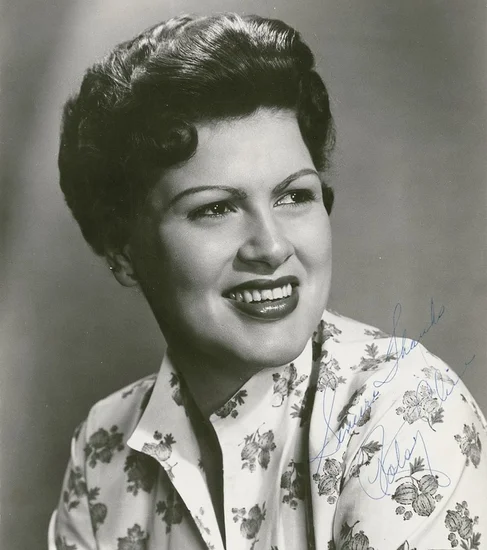
American country music legends Patsy Cline, Hawkshaw Hawkins, and Cowboy Copas died in a plane crash near Camden, Tennessee. The tragedy shocked the country music world and devastated fans nationwide.
Patsy Cline’s death at age 30 cut short one of country music’s most promising careers. Her distinctive voice and emotional performances had already established her as a genre-defining artist.
1953 – Sergei Prokofiev Dies

Russian composer Sergei Prokofiev died in Moscow, ending one of classical music’s most innovative careers. His compositions bridged traditional Russian music with modernist experimental techniques.
Prokofiev’s ballets, symphonies, and concertos revolutionized 20th-century classical music. His works like “Peter and the Wolf” and “Romeo and Juliet” achieved international acclaim and enduring popularity.
1966 – Anna Akhmatova Dies

Ukrainian-Russian poet Anna Akhmatova died, concluding a literary career that spanned the Soviet era’s most turbulent decades. Her poetry captured the human cost of political oppression and war.
Akhmatova’s “Requiem” memorialized victims of Stalin’s purges with extraordinary emotional power. Her work provided hope and solidarity for those suffering under totalitarian rule.
Religious and Social Events on March 5
1943 – Athens General Strike
Greek workers staged a massive general strike and protest march in Athens against rumors of forced labor mobilization. Citizens demonstrated against Axis occupation forces and their collaborationist policies.
The strike reflected growing Greek resistance to Nazi occupation and economic exploitation. German authorities withdrew the mobilization decree the following day, demonstrating the power of popular resistance.
2021 – Pope Francis Visits Iraq
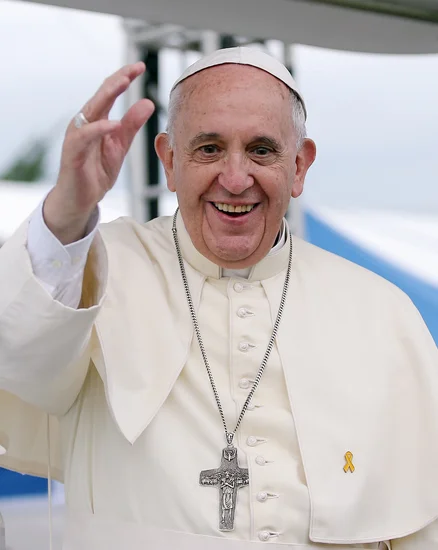
Pope Francis began a historic visit to Iraq amid the COVID-19 pandemic, becoming the first pontiff to visit the war-torn nation. His journey promoted interfaith dialogue and supported persecuted Christian communities.
The papal visit symbolized hope for Iraq’s religious minorities and encouraged peaceful coexistence. Francis met with Shia leaders and visited ancient Christian sites damaged by conflict.
2001 – Hajj Stampede in Mina

A stampede on the Jamaraat Bridge during the Hajj pilgrimage killed 35 people in Mina, Saudi Arabia. The tragedy highlighted safety concerns during one of Islam’s most important religious observances.
Saudi authorities implemented new crowd control measures following the incident. The stampede underscored the challenges of managing millions of pilgrims during the annual religious gathering.
Business and Economic Events on March 5
1970 – Nuclear Non-Proliferation Treaty Takes Effect
The Treaty on the Non-Proliferation of Nuclear Weapons entered into force after ratification by 43 nations. This landmark agreement aimed to prevent the spread of nuclear weapons technology worldwide.
The treaty established international frameworks for nuclear energy cooperation and disarmament. Major powers committed to reducing their nuclear arsenals while preventing weapons proliferation.
1974 – Israeli Forces Withdraw from Suez Canal
Israeli military forces withdrew from the west bank of the Suez Canal following the Yom Kippur War. This strategic pullback marked progress in Egyptian-Israeli peace negotiations.
The withdrawal reopened the vital shipping channel for international commerce. Egyptian and Israeli negotiators continued working toward comprehensive peace agreements in the region.
1929 – David Dunbar Buick Dies
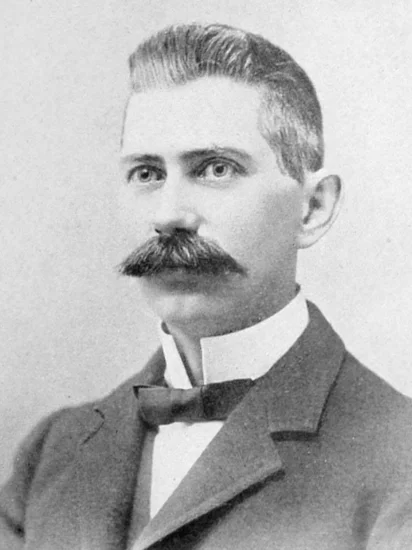
Scottish-American businessman David Dunbar Buick died, leaving behind the automotive company that bore his name. His pioneering work in automobile manufacturing helped establish the American automotive industry.
Buick’s innovations in engine design and manufacturing processes influenced the entire automotive sector. His company became a cornerstone of General Motors’ automotive empire.
Transportation and Infrastructure on March 5
1966 – BOAC Flight 911 Crashes

A Boeing 707 aircraft broke apart in mid-air due to clear-air turbulence and crashed into Mount Fuji, Japan. All 124 passengers and crew members died in the devastating accident.
The crash highlighted the dangers of severe turbulence near mountainous terrain. Aviation authorities implemented new safety protocols and weather monitoring systems following the investigation.
1957 – Sutton Wick Air Crash
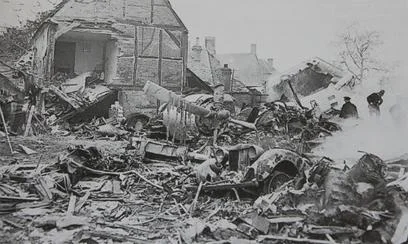
A Blackburn Beverley aircraft from 53 Squadron, Royal Air Force, crashed into Sutton Wick village in Berkshire. The accident killed most crew members and passengers, plus two local residents.
The crash demonstrated the risks of military aviation operations near populated areas. Royal Air Force officials reviewed flight paths and safety procedures following the tragedy.
1967 – Lake Central Airlines Flight 527 Crashes

Lake Central Airlines Flight 527 crashed near Marseilles, Ohio, killing all 38 people aboard. The accident shocked the local community and prompted federal aviation safety investigations.
Federal investigators examined weather conditions and mechanical factors contributing to the crash. The tragedy led to improved safety standards for regional airline operations.
Sports and Recreation on March 5
1977 – Tom Pryce Dies at Kyalami

Welsh Formula One driver Tom Pryce died during the South African Grand Prix at Kyalami circuit. The 27-year-old driver was killed in a freak accident involving a track marshal.
Pryce’s death highlighted the dangerous conditions facing Formula One drivers during the 1970s. The sport subsequently implemented enhanced safety measures and protective equipment for drivers and officials.
1981 – Yip Harburg Dies

American songwriter Yip Harburg died, ending a career that produced some of America’s most beloved popular songs. His compositions included “Over the Rainbow” and “Brother, Can You Spare a Dime?”
Harburg’s lyrics captured both the optimism and struggles of American life during the 20th century. His work influenced generations of songwriters and entertained millions worldwide.
1982 – John Belushi Dies

American actor and comedian John Belushi died at age 33, cutting short one of entertainment’s most dynamic careers. His performances on “Saturday Night Live” and in films like “The Blues Brothers” achieved cult status.
Belushi’s death shocked fans and highlighted the pressures facing young entertainers. His comedic genius and energetic performances left an indelible mark on American popular culture.
Notable Births on March 5
1908 – Rex Harrison Born
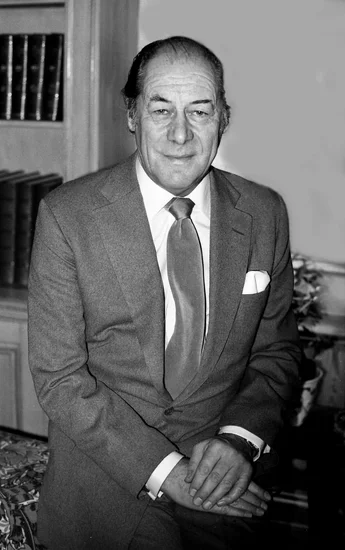
English actor Rex Harrison was born, beginning a career that would span stage and screen. His distinctive voice and sophisticated demeanor made him one of Britain’s most recognizable performers.
Harrison achieved international fame in “My Fair Lady” and numerous other productions. His portrayal of Professor Henry Higgins became one of musical theater’s most iconic performances.
1922 – Pier Paolo Pasolini Born

Italian filmmaker and writer Pier Paolo Pasolini entered the world, destined to become one of cinema’s most provocative voices. His artistic vision challenged conventional morality and political orthodoxy.
Pasolini’s films explored themes of sexuality, religion, and social inequality with unprecedented boldness. His controversial works earned both critical acclaim and fierce opposition from conservative critics.
1934 – Daniel Kahneman Born
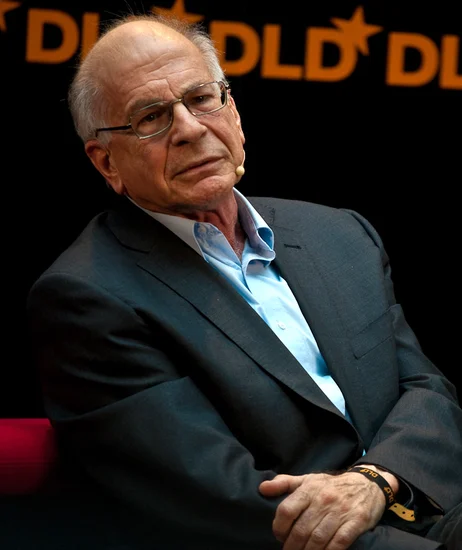
Israeli-American psychologist Daniel Kahneman was born, later winning the Nobel Prize in Economics for his groundbreaking research. His work revolutionized understanding of human decision-making and behavioral economics.
Kahneman’s insights into cognitive biases and irrational behavior transformed multiple academic disciplines. His research influenced fields ranging from economics to public policy and marketing.
1939 – Samantha Eggar Born

English actress Samantha Eggar was born, beginning a career that would include Academy Award recognition. Her performances in psychological dramas earned critical acclaim and international recognition.
Eggar’s portrayal in “The Collector” demonstrated her ability to convey complex emotional states. Her work in both British and American films showcased remarkable versatility and dramatic range.
1947 – Olusegun Obasanjo Born

Nigerian general and politician Olusegun Obasanjo was born, later serving as Nigeria’s President. His leadership spanned both military and civilian governments during crucial periods of Nigerian history.
Obasanjo played key roles in Nigeria’s transition to democracy and economic development. His influence extended throughout West Africa and the broader African continent.
1955 – Penn Jillette Born

American magician Penn Jillette was born, later forming the famous Penn & Teller duo. His combination of magic, comedy, and skepticism created a unique entertainment formula.
Jillette’s intellectual approach to magic challenged audiences to think critically about deception and belief. His performances blend entertainment with philosophical commentary on human nature.
1963 – Joel Osteen Born

American pastor Joel Osteen was born, later becoming one of the most influential televangelists in America. His positive message and charismatic delivery attracted millions of followers worldwide.
Osteen’s Lakewood Church became America’s largest congregation under his leadership. His books and television programs spread his optimistic Christian message to global audiences.
1974 – Eva Mendes Born

American actress and model Eva Mendes was born in Miami, beginning a career that would span fashion and film. Her performances in romantic comedies and dramas earned widespread recognition.
Mendes became a fashion icon and successful entrepreneur alongside her acting career. Her beauty and talent made her one of Hollywood’s most sought-after leading ladies.
Notable Deaths on March 5
1953 – Joseph Stalin Dies

Soviet leader Joseph Stalin died at his Volynskoe dacha after suffering a cerebral hemorrhage. His death ended nearly three decades of totalitarian rule that transformed the Soviet Union.
Stalin’s leadership included industrialization, victory in World War II, and the deaths of millions through purges and policies. His death triggered a succession struggle that would reshape Soviet politics.
1953 – Herman J. Mankiewicz Dies

American screenwriter Herman J. Mankiewicz died, concluding a career that helped define Hollywood’s golden age. His screenplay for “Citizen Kane” revolutionized American cinema.
Mankiewicz’s wit and cynicism infused his scripts with psychological depth and social commentary. His work influenced generations of screenwriters and filmmakers worldwide.
1963 – Patsy Cline Dies

American country music singer Patsy Cline died in a plane crash at age 30, ending one of music’s most promising careers. Her powerful voice and emotional delivery had already established her as a country music legend.
Cline’s crossover appeal brought country music to mainstream audiences like never before. Her recordings continue to influence singers across multiple genres decades after her death.
1967 – Mohammad Mosaddegh Dies

Iranian Prime Minister Mohammad Mosaddegh died, concluding a political career that challenged Western oil interests. His nationalization of Iranian oil resources had profound implications for Middle Eastern politics.
Mosaddegh’s democratic reforms and anti-imperial stance made him a hero to many Iranians. His overthrow by CIA-backed forces in 1953 shaped Iranian-American relations for decades.
1980 – Jay Silverheels Dies

Canadian-American actor Jay Silverheels died, ending a career that made him one of television’s most recognizable Native American performers. His portrayal of Tonto in “The Lone Ranger” achieved iconic status.
Silverheels broke barriers for Native American actors in Hollywood while advocating for authentic portrayals of indigenous peoples. His work paved the way for future generations of Native American performers.
2013 – Hugo Chávez Dies

Venezuelan President Hugo Chávez died after a battle with cancer, ending 14 years of socialist leadership. His populist policies and anti-American rhetoric transformed Venezuelan politics and influenced Latin America.
Chávez’s death created a leadership vacuum that would lead to Venezuela’s ongoing political and economic crisis. His legacy remains controversial both within Venezuela and internationally.
Holidays and Observances on March 5
St. Piran’s Day

Cornwall celebrates St. Piran’s Day, honoring the patron saint of tin miners and Cornwall itself. The celebration includes parades, traditional music, and displays of the distinctive black and white Cornish flag.
St. Piran’s Day reinforces Cornish cultural identity and celebrates the region’s unique heritage. Communities throughout Cornwall organize festivals that showcase local traditions and historical connections.
Learn from Lei Feng Day
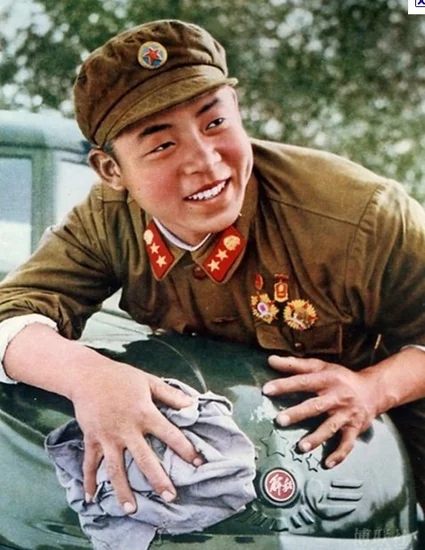
China observes Learn from Lei Feng Day, promoting the socialist ideals embodied by the model soldier Lei Feng. Citizens participate in volunteer activities and community service projects.
The observance encourages selfless service and dedication to collective welfare over individual interests. Schools and organizations across China organize educational activities about Lei Feng’s exemplary life.
Eastern Orthodox Liturgical Calendar
The Eastern Orthodox Church observes several saints’ feast days, including Ciarán of Saigir and Theophilus of Caesarea. These commemorations honor early Christian leaders and martyrs.
Orthodox communities celebrate with special liturgical services and traditional observances. The feast days connect modern believers with the historical foundations of Christian faith.
